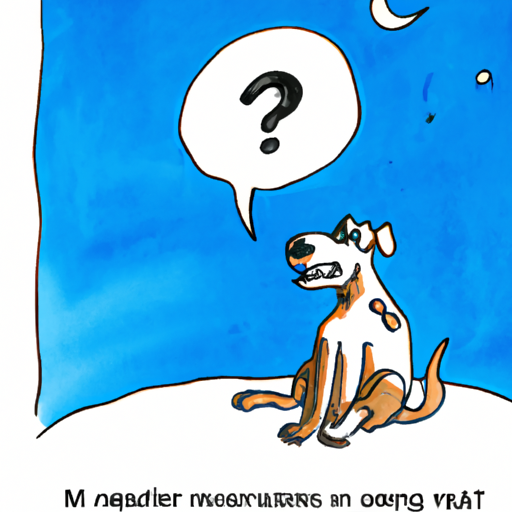As a caregiver to your beloved canine, you might have wondered about the enigmatic and often haunting sound that your dog makes – the howl. This article uncovers the reasons why dogs howl and dispels any myths you might have heard.
Understanding the Canine Language
Dogs, like their wolf ancestors, are pack animals. They communicate using a series of vocalizations, body language, and even scents. Howling is a fundamental part of this language, but what exactly does it signify?
- Communication: Dogs howl to send a message to other dogs, usually indicating their location or warning off intruders.
- Ancestral Instinct: Howling is an instinctual behavior inherited from wolves, often triggered by environmental sounds like sirens, music, or the howl of another dog.
- Separation Anxiety: Dogs suffering from separation anxiety will often howl when left alone. It’s their way of showing distress and calling out for their owners.
Decoding the Different Types of Howls
Understanding the various types of howls can help you better understand your dog’s needs and improve your bond. Here’s a simple table to illustrate:
| Type of Howl | Meaning |
|---|---|
| Long, sustained howl | “I’m here! Where are you?” |
| Short, sharp howl | Alarm or warning |
| Constant, repetitive howl | Sign of distress or loneliness |
Ways to Manage Excessive Howling
While howling is a natural behavior, excessive howling can be a sign of an underlying problem or become a nuisance. Here are some strategies you can implement:
- Provide plenty of physical and mental stimulation to keep your dog occupied.
- Training and socialization can help manage howling triggered by external stimuli.
- Consult with a professional if you suspect separation anxiety or any health-related issues.
The Role of Breed in Howling Behavior
Some dog breeds are more prone to howling than others. Breeds with a strong hunting heritage, such as Beagles and Coonhounds, are often more vocal. Similarly, breeds like Huskies and Malamutes, closer to their wolf ancestors, are known for their howling.
FAQs
Q: Is howling a sign of pain in dogs?
A: While howling can sometimes indicate pain, it is not always the case. If your dog’s howling is accompanied by other signs of distress, it’s best to consult a vet.
Q: Can I train my dog to stop howling?
A: Yes, with patience and consistent training, you can manage your dog’s howling. However, remember that it’s a natural behavior for them.
Q: Why does my dog howl at sirens?
A: Sirens and other high-pitched sounds can trigger your dog’s instinctual urge to howl. It’s their way of responding to what they perceive as another dog’s call.
By understanding why dogs howl, you can better connect with your canine companion and meet their needs in a supportive, empathetic way. After all, every howl is a song in the symphony of their language, waiting to be understood by you.



